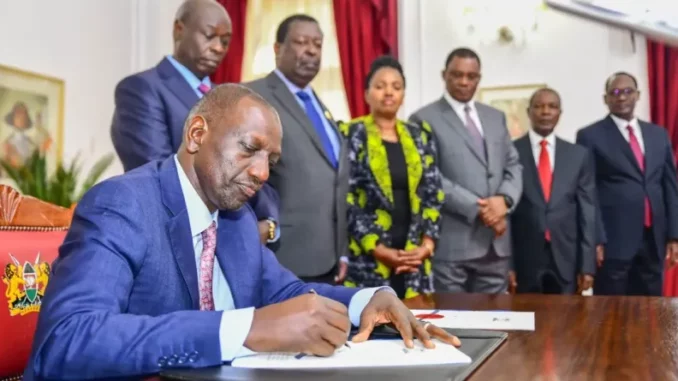
In a significant legal setback for President William Ruto’s administration, Kenya’s Court of Appeal has declared the government’s 2023 finance law unconstitutional. This ruling comes in the wake of violent protests that erupted in response to the Act’s controversial measures, including doubling the fuel VAT and introducing new taxes.
The court’s decision overturns a previous High Court ruling that had largely upheld the finance bill, save for the housing levy. The government’s subsequent efforts to continue collecting the housing tax through new legislation are also facing legal challenges.
This latest verdict throws a wrench into the government’s fiscal plans, as it has been relying on the 2023 finance law for tax collection since Ruto withdrew this year’s bill. The ruling allows for an appeal to the Supreme Court, but the government has yet to comment on its next steps.
The finance law controversy has already prompted a cabinet reshuffle, with Ruto firing all but one minister in response to the youth-led protests. Despite the pushback, Ruto maintains that these tax increases are crucial for funding development programs and managing Kenya’s hefty public debt.
As the government grapples with this legal challenge, it’s also in talks with the International Monetary Fund, having submitted a new economic plan for consideration. The unfolding situation highlights the delicate balance between economic reforms and public sentiment in Kenya’s evolving political landscape.
